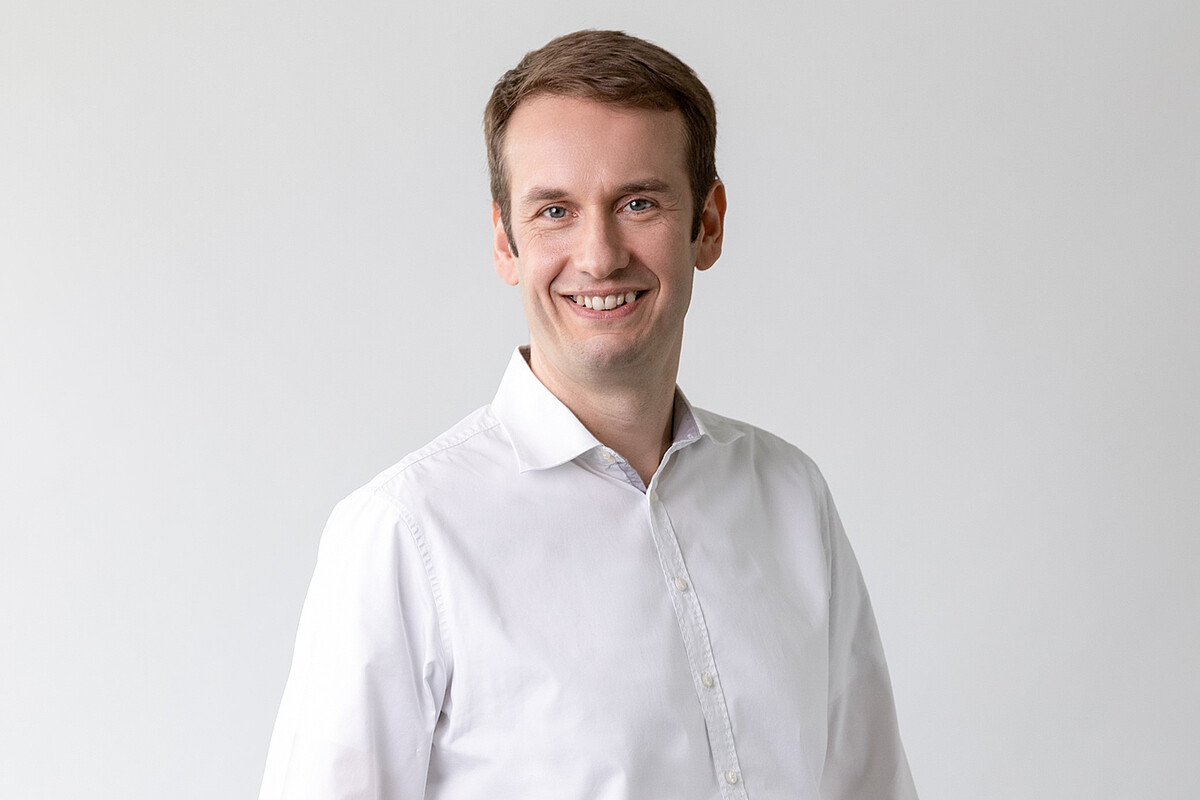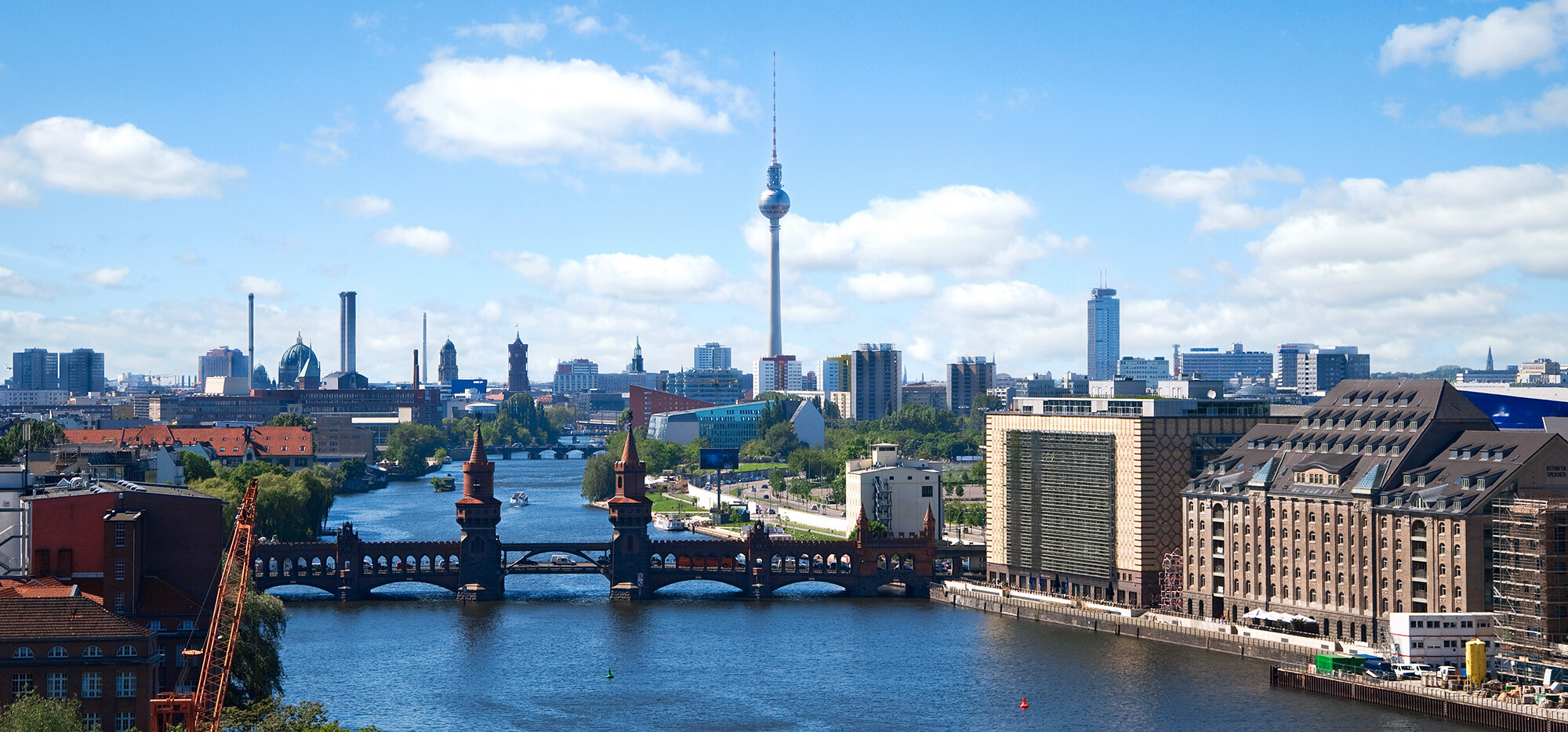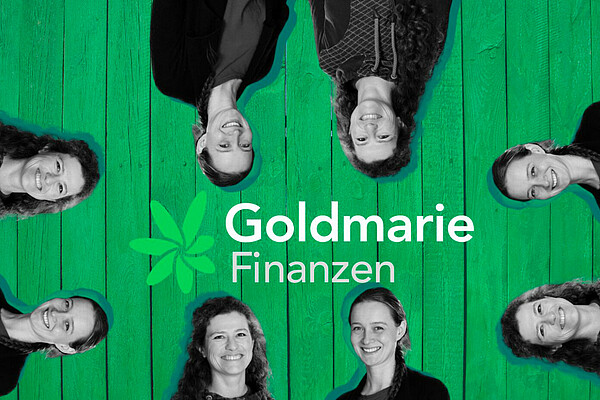Public Money for Private Enterprise
We speak with Markus Lehmann, Finance Director of IBB Ventures, about venture capital and startup-funding in Berlin.
The IBB has been Berlin’s official business promotion bank since 1924, founded in the years of the Weimar Republic. In 1997, IBB Ventures was formed as a subsidiary to manage investment in young companies in Berlin using public funds. Later these funds were supplemented by the EU’s European Regional Development Fund (ERDF).
The current funds comprise €120M to finance impact, technology, and creative industries startups. IBB Ventures works in close cooperation with the state of Berlin, the EU, the IBB itself, and a number of private venture capital (VC) investors.
We asked finance director Markus Lehmann about the investment scene in Berlin.
When is a startup or a business idea a good case for venture capital?
For us, scalability is one of the most important criteria. The startup must have very high growth potential. After all, our business model involves us investing in the startup at a very early stage, when there are maybe less than ten employees, or turnover is close to zero. We become shareholders and acquire a stake in the startup in return for our investment, and the value of the stake is of course based on the size of the startup. So if the startup handles the money well after our investment and succeeds in growing very quickly over five to seven years, to over 100 employees or 1,000 employees and with a sales volume of several million, then our share has risen in value accordingly. We aim to sell our share for several times our acquisition costs. This potential, this exit at a multiple of our acquisition costs, is only possible if it is a fast-growing business model.
It has to be said clearly that it doesn’t always work. But the potential should be there for every company that we finance.
When you finance such a small team, do they have to have a VC in their pocket before they come to you, or do you help them find one?
Usually they have already collected smaller sums before they come to us, sometimes from individual business angels. We are often the first institutional investor. We often go in together with other early-stage investors or with a business angel consortium. It is important for us that we always involve private capital, simply because we are 100 percent publicly financed.
The ratio for us is roughly one to six across the startups in which we are involved, so for every euro that we invest, €6 flows from private capital into the company in the end.
And where do these startups come from? Are they spin-offs from the universities, for example, or are they companies that move to Berlin?
Both. Berlin has a very strong startup ecosystem. It includes a wide variety of players. These are the startup centers, the universities, research institutions, of course. There are many investors, both institutional and business angels, the networks, associations. And of course the startups themselves and the founders and also the talented people who work in the startups. All of this together is a mixture where it is easier to set up a startup than in other locations because you can network well and benefit from collective experience.
It’s easier to found a startup here in Berlin than anywhere else [in Germany]. So it’s highly attractive to set up companies in Berlin, for people who are already here, but also for those who prefer to come to Berlin from elsewhere, because they see that it's much easier to find talent here and to raise capital.
How important are public funding programs?
There are two areas in which programs are particularly important. The first is the “enabling” area, where someone who has the idea of founding a company first needs a manageable amount of money to properly work out the idea, perhaps develop a prototype, and put together a team. This stage is actually too early for us at IBB Ventures. In order to get on the radar of investors or business angels, they need seed financing that should be as easily accessible as possible. And that's where programs like EXIST come in, from the university sector, or here in Berlin the startup bonus via IBB, where founders can get a grant for these initial startup costs to see if they can then manage to meet the requirements for proper financing.
We invest from €200,000 upwards together in a consortium, so for us it usually starts with financing amounts of half a million. You don’t usually invest that kind of money based only on a business plan. There has to be a bit of substance there. One main purpose of public funding programs is to make startups “investment-ready”.
Secondly, there are companies that are into deep tech or in an R&D-heavy area. Then funding programs that are aimed at R&D are important, because they help to increase liquidity and runway and partially take on the development risk. Programs such as ProFITor the EIC, European Innovation Council, are very important in the R&D sector. We do some deep tech financing in the early phase. We can afford to do this because we are financed in such a way that we can invest in the same startups over several fund generations, and so we can finance things that we know will probably not exit within seven years. This is sometimes difficult for private VCs with limited fund terms. They tend to look at how quickly they can achieve an exit. Startups developing hardware or that have a long R&D phase will know that private VCs generally don't want to get involved in such an early phase.
We can help such startups to get to the point where they can say that the product is now ready or almost ready for the market, that they can now go into production.
You mentioned the advantages of Berlin for founders. Is it still relevant where a VC has its office? Has the VC scene in Berlin grown along with the start-ups?
For us as a regional investor, and we are only active in Berlin, this is an important question. During the coronavirus pandemic, we asked ourselves whether physical location would remain so important. It was no longer possible for us to meet in person, as we usually did, and we switched to online formats, so of course we asked ourselves the question: will this remain the case permanently? Is proximity still important if you only ever meet virtually anyway?
In the meantime, it has to be said that this has been reversed. We don’t actually make an investment without having seen the founders in person. And that's also the case with most of the others. Because the personal impression is very important, particularly in the early phase.
If you take a look at the 20 most active investors in Berlin, i.e. those who do the most financing here, you’ll see that they all have an office in Berlin and most of them even have their headquarters or their only office here.
Berlin is the startup capital in Germany. If you have an office in Germany, then it’s going to be in Berlin. Having said that, if you look at the top 20 investors in Bavaria, they have their headquarters or head office somewhere in Bavaria, in Munich or other cities. So, it seems to play an important role in the early stages that you have a certain geographical proximity.
It’s also the case that a VC, let’s say from San Francisco, won’t look at early-stage startup financing to the tune of half a million. The international investors are more likely to look at startups that are beyond this early phase and that are looking for larger amounts in the millions. They’re looking at how the startup has developed, what are the metrics and the business model. That tends to be very analytical and numbers-driven. And for an investment like that in the late phase for 10 million plus, an investor will travel from further away if they don't have an office in Berlin.
How many financing rounds are there in Berlin each year, and how many of them are you involved in?
We had around 290 financing rounds in Berlin in 2023. 2021 was an absolutely exceptional year, when we were at 500. We were involved in just over 10 percent of the rounds ourselves. That’s a very impressive figure for a fund like ours – our current fund generation has a volume of €120M – when you consider that Berlin is the location where 40 to 50 percent of venture financing rounds in Germany take place, depending on the year you look at. If you take Germany as a whole, we are one of the most active investors, even though we are only active regionally.

If I’m not mistaken, IBB Ventures was spun off from IBB in 1997 and was initially called IBB Bet.
IBB Beteiligungsgesellschaft, exactly, that’s actually still our name today. But we’ve been dealing with lots of international investors for a few years now, and that’s always a bit of a tongue twister. That’s why we say IBB Ventures is the brand under which we operate; the company still trades as IBB Beteiligungsgesellschaft. It was founded in 1997 because the bank wanted to offer equity financing as well and that didn’t work so well from within the bank, so IBB Bet was set up as a separate unit with its own staff, initially with IBB money. I've been here since 2000.
Since 2004 we no longer operate solely with IBB funds but have also been able to acquire EU structural funds from the ERDF. Before then, these were generally handed out as grants. The money was distributed as sensibly as possible, but nothing came back, because it was a grant. And so we looked at how we could allocate this money differently, i.e. invest it rather than just hand it out as a grant. And that's when we set up the first VC fund here in Berlin, partly with these ERDF funds. It has turned out to be a successful model. We are now in the fourth generation of funds. And we have successively expanded the range. The first fund had a strong focus on technology. Since 2008, we have had another fund that focuses on the creative industries, which also play a very important role in Berlin. And since 2022 we have a third fund, the impact fund, which focuses on business models with added social value.
How has the entire VC scene developed in recent years?
What has developed above all is the ecosystem, which has now reached a size and stability in Berlin that a crisis will no longer cause it to shake. This is something that has to be built up over many years. We see that ourselves with our own funds. The money that we invested there in the first few years, especially from 2004 onwards, is now money that we have received back and that we are now re-investing. But there's a long span of time between the investment and the return of the money. You need a lot of stamina and you have to persevere.
So Berlin is a good place to raise money.
That is definitely the case, yes. There are a lot of players here, i.e. financing players, who are on the ground here in Berlin. And the Berlin startup ecosystem is of course also very visible internationally. Large global VCs are looking at Berlin and regularly invest in later-stage rounds.
What if I have a startup that doesn’t fit into your funds, that is neither technology nor impact, nor creative industries? For which other industries is it easy to get money here?
I think we cover the whole range of topics that are suitable for startups. The scaling potential is more important than the industry. We are very broadly positioned, which also makes perfect sense as a region. This regional focus may be considered a limitation, that we only finance in Berlin. It doesn't make sense to add any other major restrictions on top of that.
So, if it’s a scalable startup, then the industry is not the decisive factor. And of course, it is important for all funds that we look at the topic of ESG, which is also becoming an increasingly important topic for private VCs. We don’t want to finance business models that have a very negative impact in terms of resource consumption or employment models, something that only works if you don’t pay even the minimum wage. These are things that we, at least as a public VC, tend not to finance. These are exclusion criteria. Otherwise, we are very open when it comes to sectors.
You mentioned the ecosystem. Incubators and accelerators are certainly part of this, how important are they for your work? Do you scout such institutions and startup events, or are you already inundated with proposals and offers?
We want to see as much as possible of everything that comes onto the market here in Berlin. So we scout the market very actively. Of course, we are also very well connected with accelerators, incubators, and universities. We are very active at the events that take place, present ourselves and our offerings, or, if there are competitions, as judges, and in some cases we’re on their boards. We are also very accessible compared to others, it has to be said. So you can just call us. We have office hours where you can talk to us about what we can offer and what our ideas are, without even having a business plan. All this is important to us because we are only active in Berlin. We want to understand this market very well in order to make a good offer for many people here.
If I understand you correctly, Berlin is quite good for early-stage financing, but when it gets serious, big, and international the focus shifts to America. What can Berlin do to become interesting for the bigger players?
Well, a lot of money comes to Berlin from America or Asia in the later phases, yes, but then it is also spent here. So, we think that's actually a good thing for Berlin. We work a lot with international investors. And it's not usually the case when you sell to other players, some of them international, that the company then packs up everything here and moves to the USA. It's not like that. Even if they are taken over by a company that is not based in Germany or not in Berlin, it is usually the case that they then continue to invest in the location and expand here. Often the assets are simply the talented people who work here, developers for example, and they don't move just because the company is sold, but they have their lives here.
Many of the companies that we have sold are still in Berlin and have continued to grow since our exit because the new investor, the new owner, then continues to invest in the location in order to build it up further.
True, what flows out again from such international investors when there is an exit is the value generated here in Berlin, in other words the capital that is generated through such a company’s performance might then be used to pay the pensions of, say, Canadian teachers. It would, of course, be desirable for more private capital from [European] insurance companies, pension funds and so on to flow into the market in Europe, so that this money remains in Europe or is reinvested. Efforts are being made, but there is still a long way to go to ensure that this really picks up momentum.
Because of the risks involved?
It’s partly about the legal framework. How much risk is a pension fund allowed to take, where is it allowed to invest? Also the universities, how they are financed, is very different in the USA than here. There is simply a lot more private capital on the move in the USA.
The other potential that Europe is still missing out on a bit is the common market, which is a shame. Like many startups, when we want to expand and go abroad, we typically look towards the USA or western Europe. But if you consider the location of Berlin in the middle of Europe, there are certainly still many opportunities and great market potential in eastern Europe.
Do you have any other ideas for such opportunities for Berlin?
Yes, there are many topics that are coming onto the radar, not just in Berlin specifically. For instance, we are seeing many artificial intelligence startups emerging here in Berlin. And we are quite active in financing them. Another topic that is increasingly being addressed is deep tech financing. I already mentioned the problems here, these long horizons. You can’t allow such startups, which may have enormous potential, to fall through the cracks of private VC funds because of this exit-only perspective, so you have to look at how you can support such startups in the long-term so that such technologies are also developed in Europe.
Thank you, Markus.
Berlin accounts for a large part of the financing volume in Germany. In fact, Berlin is one of the top 3 cities in Europe for startup financing. The VC scene has grown substantially, with perhaps a handful of VC companies in the city when IBB Bet was founded to certainly more than 100 today. Financing is traditionally strong in the software and tech, healthcare and e-commerce sectors, but there are also plenty of startups in food and fintech getting funded, as well as in many other industries.
Berlin has an exceptional position in Germany. According to EY’s Startup Barometer, every third company financed in Germany in 2023 is based in Berlin. In terms of overall financing amount, Berlin’s share is around 40%. In 2022, the proportion was even higher at around 50%.
Around 290 financing rounds took place in Berlin in 2023. It is true that in the record year 2021 the number was around 500. However, looking at the long-term trend, Berlin is now back to pre-pandemic levels. This also applies to the overall amount invested; in 2023 this was around €2.3B. In the record year 2021, the value was over €10B – mostly due to a couple of spectacular high-volume investments.
The decisive factor for Berlin’s strong position and the high level of startup and financing activity is Berlin’s strong ecosystem for startups. In Berlin, there is a conducive combination of universities, research institutions, startup centers, business angels, institutional investors, funding offers and, of course, the startups and their founders themselves. This ecosystem leads to a strong interest in founding in Berlin and also attracts talent from all over the world.
Berlin has now reached a critical mass. Successful startups not only attract talent but also investors. Some winnings from exits flow back into the ecosystem – be it via successful founders who are now active as business angels or because venture capital funds are able to raise new capital thanks to a solid track record. Such an ecosystem can cope with setbacks and crises.
All in all, Berlin is a great place for founders. If you’re looking for financial help for your project, startup, or business, see our article Get Backing in Berlin.
Header image: © Adobe Stock





